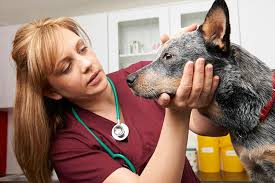Labrador Retrievers are known for their love for food which causes them to be overweight. A study published on March 6th discovered why some labs are more likely to be overweight than others. The researchers found that genes play a huge role in why most labs are obese. In the past, researchers identified a gene called POMC, this gene makes some labs more likely to over eat, but its not that simple. Scientists studied 241 British Labs, looking at their DNA, body condition, behaviors with food, and how we could manage their weight/diet. There is another gene other than POMC that is liked to obesity in labs called the DENND1B. The labs that had the DENND1B gene contained around 8% more of body fat compared to the labs lacking that gene. This gene not only plays a role in dog obesity but humans as well, impacting how the brain responds to food. Researchers used the information they gathered from the study and created the "risk score", which helped predict how much more likely a lab is to become overweight. The dogs that were always begging for food, getting into human food, and or just obsessing over food were the dogs with "obesity-prone" genes. There are ways to help the dogs that struggle with their weight, such as strict feeding schedules and not giving them table food. You don't need to pay a bunch of money to genetically test your dog for these genes- just paying attention to their behaviors with food can tell you a lot.
Working at a vet hospital, I really do see more overweight labs than any other breed. Not only are they beggars but they're notorious for eating foreign objects. It's really interesting to see how genetics gives us an explanation for why so many labs are relentless when it comes to food. I think it's important for everyone, not just people who work in the veterinary field to know there is gene like DEEND1B making labs biologically more food driven. It helps us be more empathetic towards owners that are truly trying to put their dogs on diets and stick to a feeding schedule. There are resources that can help guide owners when it comes to putting their dog on a diet to better maintain a healthy lifestyle for them.


